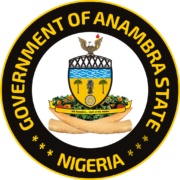- +2348084141850
- Today: 08.00 to 16.00
Contact Us Now
Contact Info
- Jerome Udorji Complex, State Secretariat, Awka, Anambra State
- +2347084141850
- moe@anambrastate.gov.ng
Technical & Vocational Education - Anambra Ministry of Education
- Home
- Technical & Vocational Education

01Jun’21
The Technical & Vocational Education Department within a Ministry of Education is responsible for overseeing technical and vocational education and training (TVET) programs. TVET focuses on equipping students with practical skills and knowledge that are relevant to specific industries and trades. Here are some common functions of the Technical & Vocational Education Department:
**Curriculum Development:** Designing and updating curricula for technical and vocational programs to ensure they align with industry needs, technological advancements, and relevant standards.
**Program Design:** Developing technical and vocational education programs that offer a diverse range of courses and training opportunities, catering to various industries and skills.
**Industry Engagement:** Collaborating with industries and employers to identify skill gaps, industry demands, and emerging trends to tailor TVET programs accordingly.
**Skill Training:** Offering training in practical skills, such as mechanics, electronics, healthcare, hospitality, and more, that prepare students for specific careers.
**Apprenticeships and Internships:** Facilitating partnerships between educational institutions and businesses to provide students with hands-on learning experiences through apprenticeships and internships.
**Equipment and Facilities:** Ensuring that TVET institutions have modern equipment, laboratories, and facilities that mirror real-world workplace environments.
**Teacher Training:** Providing professional development and training for TVET educators to enhance their teaching methods and industry knowledge.
**Industry-Recognized Certifications:** Collaborating with industry associations to offer certifications that validate students’ skills and enhance their employability.
**Quality Assurance:** Monitoring and evaluating the quality of TVET programs through assessments, inspections, and reviews to ensure they meet industry standards.
**Lifelong Learning:** Offering opportunities for individuals at various stages of life to acquire new technical skills or upgrade existing ones through TVET programs.
**Career Counseling:** Providing guidance and information to students about the various career paths available through TVET programs.
**Entrepreneurship Support:** Equipping students with the skills and knowledge to start and manage their own businesses in relevant industries.
**Gender and Diversity Inclusion:** Ensuring that TVET programs are accessible to individuals of all genders and backgrounds and promoting gender equality in traditionally male-dominated fields.
**Partnerships with Industries:** Collaborating with businesses, industries, and trade associations to develop customized training programs that meet specific workforce needs.
**Research and Innovation:** Conducting research to identify emerging trends, technology advancements, and changing industry requirements to adapt TVET programs accordingly.
**Workforce Development:** Contributing to the development of a skilled workforce that meets the needs of the local and national economy.
**Alignment with National Policies:** Ensuring that TVET programs align with national development goals, economic strategies, and educational policies.
**Recognition of Prior Learning:** Evaluating and recognizing the skills and knowledge individuals have gained through work experience or informal learning, allowing them to receive credit toward formal qualifications.
**Industry Advisory Boards:** Establishing advisory boards comprising industry experts who provide guidance on program content, curriculum updates, and industry relevance.
**Promotion of TVET:** Promoting the value and importance of technical and vocational education as a viable pathway to career success and economic development.
In summary, the Technical & Vocational Education Department plays a critical role in developing a skilled workforce, fostering industry partnerships, and providing practical education options that contribute to economic growth and individual empowerment.
